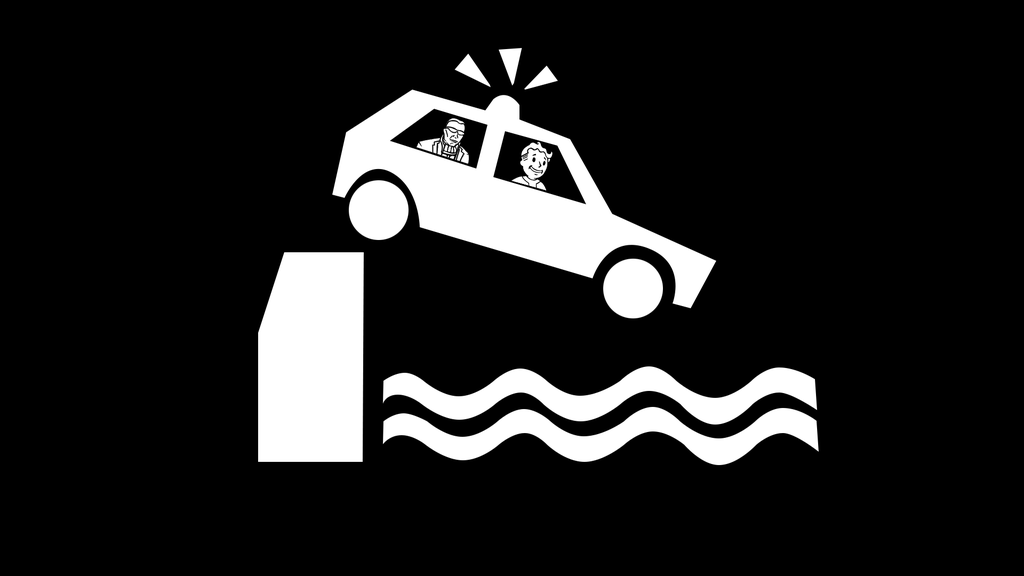In New Mexico we learned Mexican spanish
Do you mean New Mexican Spanish?
Maybe it’s because I’m from California, but we learned Mexico-Spanish. The books included Spain-Spanish (i.e. vos conjugations), but my teachers never included it in our lessons.
Vos-conjugations are not a thing in spain though? You mean tu-conjugations?
I meant vosotros, yes, thank you! Sorry, it’s been over two decades since I was in Spanish class; I mixed vos and vosotros up.
Vos is something only reserved to royalty and nobility outside of Argentina, I felt kinda offended lol.
Kinda the same here in Nevada. Our Spanish teacher explained them briefly but told us we didn’t need to learn them, didn’t test us on them, so on.
I had a teacher from Spain for three years, then for the next four years they were from various countries: Argentina, Colombia, Mexico, and the US. It was great to get used to each accent.
Do they? Duolingo, meanwhile, teaches a Latin American dialect (possibly Mexican), with “ustedes” as the second-person plural. (IIRC, their Portuguese is also Brazilian, which is a greater leap.)
Does it? My partner has learned some very strange words I have never heard used in mexico. But I guess the rest of Latin America also uses different dialects.
From what I recall, it does, especially for new words (items like “backpack” and “T-shirt” seem to have almost a different word in each country). Maybe Duolingo’s Spanish is from former south (Argentina or Chile perhaps?)
Like many others have stated, my (also redneck) school taught primarily Mexican Spanish.
I don’t know for sure what we learned, but I remember my Spanish teacher talking about a girl from Spain that came to her class and didn’t do her work.
Apparently the girl wasn’t doing well in Spanish class and later accused the teacher of teaching “gutter Mexican.”
Which … honestly didn’t hit me as the flex my Spanish teacher seemed to be making it out to be.
I took Spanish-for-Spanish-Speakers in public school so my experience may be different.
“Spanish-Spanish” (Castillian-Spanish, Castellano) is pretty easy universally understood and accepted as a “proper” Spanish. It seemed to work well despite our mixed nationalities in the class (Cuban, Dominican, Puerto Rican, Colombian, Venezuelan, Nicaraguan, and a few more but those are first that came to mind.)
deleted by creator
The tipoffs to being Spain Spanish if they teach extra conjugations for vosotros and if they speak evening with a lisp because at some point it was decided to emulate a king with a speech impediment.
the short answer is colonization. the US school system admires the Castilian language more because they have a shared history with the Spanish empire of using European languages to commit cultural genocide against the indigenous peoples of America
It makes zero sense.
The indigenous people didn’t talk in Mexican Spanish.
I didn’t say they did. Spanish versions from Latin America are still marginalized though because the indigenous peoples heavily influenced the language and the vocabulary, etc. that’s why Spaniards get judgemental when they “correct” Latine people because they view their language as inferior and grammatically incorrect
I have never seen a Spaniard correct anyone from Latin America or thinking their language is less correct.
For your knowledge Spain itself have a lot of dialects in the Peninsula, all of which sound different. And Latin American dialects are influenced by Southern Spain dialects as most colonizers were from there. In the Canary Islands and in some parts of Andalusia they also use “ustedes” as second person, for instance.
I think you just made some scenarios in your head to be angry or something.
Most “”““conflict””“” between Spain and Latin America languages I’ve seen is the never ending jokes about who has better dubbing for foreign movies or shows.
I just made up the genocide Spain committed in the Americas? lol ok buddy
The thing is that the genocide have nothing to do with the differences between Latin american and Castillian languages.
The people commiting the genocide was the people who went to Latin America and “created” Latin American Spanish dialect.
Current ascendants of Latin American people were not genocided by Spaniards. The ascendants of current Latin American people genocided the native people that used to live there.
So it makes zero sense trying to talk anything about anyone looking down to Latin American Spanish dialects because genocide of any of the things you have said. Because the people being genocided and colonized had not that language. Latin American dialect was the language spoken by the ones doing the killing, mate.
You may want to reread the question as your answer makes zero sense.
which part don’t you understand? maybe I can explain
Mainly it’s because not a single human being in Mesoamérica spoke any form of Spanish before, uh, the Spaniards turned-up. (And began committing their genocide)
The question was asking why Castilian was taught, as opposed to any other dialect/form of Spanish that is spoken in geographically proximous states to the US.
We learned American Spanish when I was in school, no vosotros, no soft S, because we learned it from Cuban teachers. My kids got a mix but mostly, as you are saying, Spain Spanish. I think part of the reason is that Spain Spanish is one thing - canonical Spanish, yes? But in the Americas it’s varied, different in the US from Mexico, from Colombia, from Argentina, Costa Rica. Dialects.
I think it’s silly to say that Spain Spanish is canonical, though. Like, says who? Spanish people? Spanish in Spain is a dialect just like any other Spanish-speaking country. Imo it makes sense to teach the dialect that learners are most likely to encounter based on their geographic location, with context about the other dialects.
We have several dialects in Spain that talk different. We all write proper neutral Spanish though, determined by the Royal Spanish Academy, RAE.
Same thing with Basque, in the tiny territory we occupy there’s a dialect per fucking town almost with distinct differences. Textbooks teach the official neutral Basque though. We would literally not be able to communicate if there was no neutral dialect everyone also knows…
Saying “country dialect” sounds very USA American tbh…
because the school system is controlled by old people and they don’t know the difference. in my high school we had Spanish teachers that were actually from Mexico and south America and they taught us useful Spanish.
I think there is a European bias and maybe a (perceived?) prestige bias to Castilian as well.
yeah, especially with the older generation (who should not legally be allowed to be administrators, if you are old enough that your brain doesn’t work anymore you can’t be trusted with authority) on top of their lack of understanding about the difference.
Here in Canada we learn Parisian French in school despite Quebecois French being one of our national languages.
It’s probably because, like BBC/Oxford English, those are the places that have an “official” version of the language they try to preserve. Same thing happens with Portugese, despite Brazilian Portugese being more commonly spoken than Portugal Portugese.
When I was in school in the 1970s it was because they couldn’t get French teachers from Quebec. The youth wanted to stay and build a sovereign Quebec. So they imported French teachers from France and I speak like a French Duke.
I don’t know what we you’re referring to, but in the part of central Ontario where my nephew attends school, the French immersion schools are most definitely teaching Quebecois French.
I tried speaking real French with my nephew and he reacted as if I was a space alien.
I remember this, after I was told I was learning France French I was a bit confused. Why wouldn’t we be learning Quebecois?
To be fair, I was a bad student so I wasn’t actually learning either…
And in Switzerland we have to learn quebeccan French. And so the circle closes.
(we train it at the end when we train understanding non-standard pronounciations)
Well yeah, but you also learn Swiss German and Swiss French and Parisian French, and Italian is an option isn’t it?
French taught on Canada (outside Quebec) is France French, not Quebec French. My source on this is that I was taught to say “we” for “oui” and not “wayh”. And the Quebec French sound I’m only getting from comediens on CBC so that could be way off.
I once stayed in a youth hostel rural Quebec and had a really weirdly hostile reception from people there, despite dredging up my very best schoolgirl French to try and make conversation. Turns out they thought I was from Ontario. When I revealed I was a Kiwi they were all suddenly very friendly. Too late!
France French people say wayh too. It’s the same difference between saying “yes” and “yeah”.
Ouais is more like ‘yeah’, not ‘yes’.
TIL there are two versions of spanish.
There’s far more than two, just like there’s plenty of dialects of english jaja
There’s uh, lots more than 2. It’s similar to how there’s English English and Nigerian English, just dialectical differences - some more major than others.
Or American English and maybe southern American English? Not sure thats different enough to count.
Depending on how diverged they are people can communicate between them with various words or phrases that are different.
Ex. Americans use the word toilet, England uses loo (which might also refer to the whole bathroom? I’m sure someone from England will correct me)
Toilet can mean the whole room if separate (i.e. no shower or bath) or just the appliance, depending on context. Can use loo to mean what Americans would refer to as ‘bsthroom’/‘restroom’.
Oh it’s absolutely different enough to count.
A lot more than two. Even within Latin America, there are some fairly interesting differences in grammar, vocab, and pronunciation.
No answers from me here, but I’m curious - how much of the US learns Spanish in school?
My knowledge may be dated and it may vary by state, but the “I want to go to uni” track had a two-year requirement of a foreign language. When I was in school, French and Spanish were the only choices and most people wanted to study Spanish. My school system had German as well at some point, but it was cut before I got into highschool in the mid '90s. Some schools have Latin, Japanese, and others as well.
I live in a medium size town in the midwest, and all of our schools offered Spanish. My high school also had french, and the richer schools had german and japanese
Here in the upper mid west a lot of schools teach Spanish. Not at a you can speak level usually. Similar to how a lot of people learn biology and forget it all when they graduate.
In my state there was some reason they wanted us all to take a second language (I think it was some scholarship we would qualify for our something?) and I always thought the reason most schools had Spanish was because finding a teacher certificated to teach Spanish was more common than other languages. And both of mine were just Midwest white dudes.
I’m not American so I’m speaking out of turn. But could it be resourcing?
Curriculums have to be made, and that sort of thing takes time and money. So I imagine it’s easier to take a curriculum for European Spanish that already exists and just keep using it under the assumption that it’s “close enough” for students to jump to Mexican Spanish from there, rather than reinvent the curriculum for Mexican Spanish.
I learned Cuban Spanish. Upon going to Spain, I was told I spoke with the English vocabulary and accent equivalent to a southern yokel from the 1970s.













